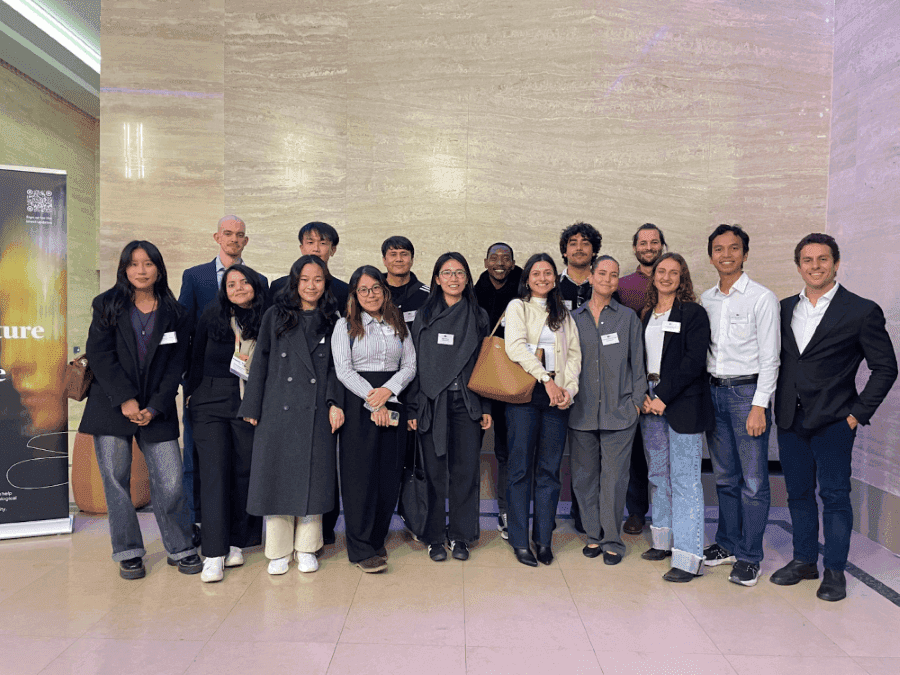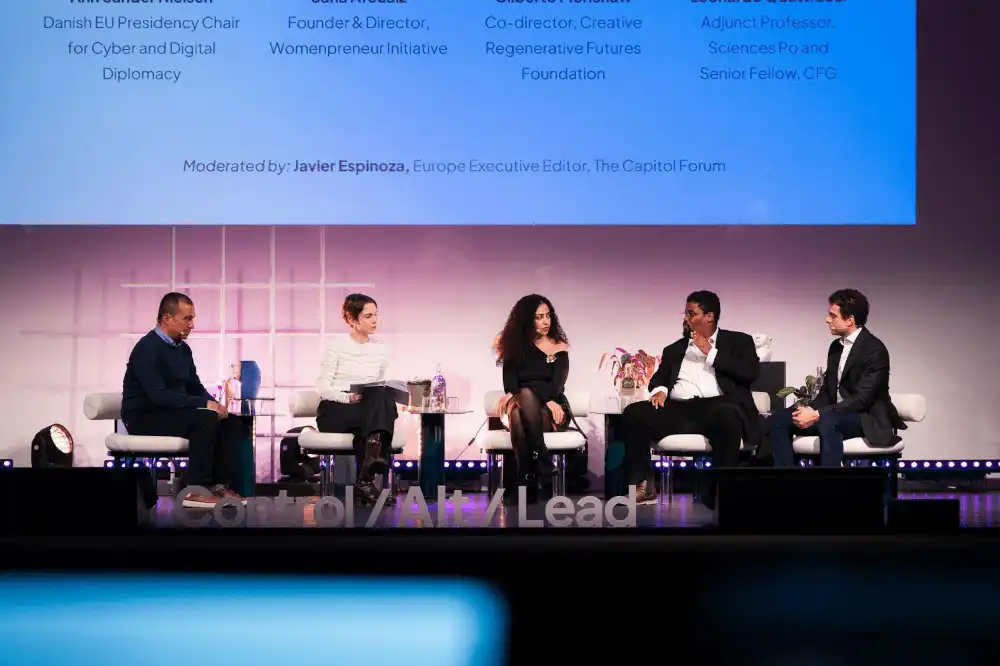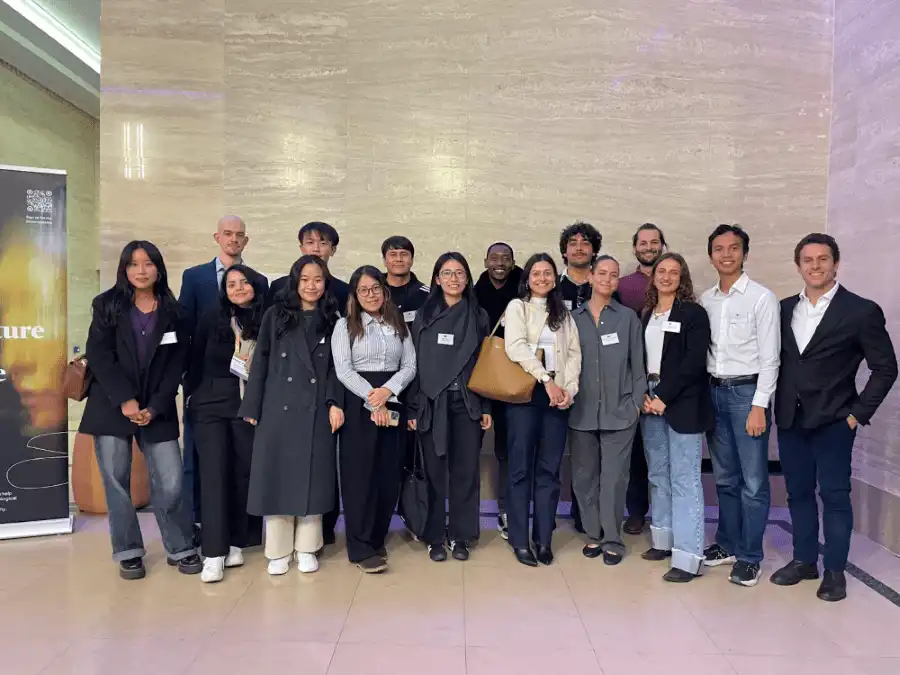Home>Managing the Polarities in the Global Tech Race – Lessons from Brussels

14.11.2025
Managing the Polarities in the Global Tech Race – Lessons from Brussels
On 29 October, PSIA students enrolled in the Digital Transformation and Innovation Management course taught by Leonardo Quattrucci and Tomaso Balbo Di Vinadio, cut their fall break short to participate in the Centre for Future Generations’ (CFG) annual flagship conference, in Brussels.
The event addressed a central question: how can Europe move from reacting to shaping the next chapter of the global tech landscape?
Participants debated whether Europe’s commitment to regulation-first policymaking has allowed it to preserve core values, or whether this approach has impeded its ability to innovate. Some speakers asserted that Europe already possesses the necessary means to maintain its sovereignty while also leading a self-sufficient technological revolution. Others countered that Europe cannot compete at scale against Chinese and American competitors, and that Europe should concentrate innovation on domains where it maintains an advantage.

In a busy day of panel discussions, debates, workshops, and networking sessions, the idea of bridging the gap emerged as a common thread tying together the students’ experiences: bridging the gap between European aspirations and the limits of reality, between classroom theory and practice, and between academia and the working world. It was a day rich not only in learning but also in experience, and offered a blueprint for a twenty-first-century education.
In this context, the conference’s networking opportunities provided a model on how to reconnect these increasingly disparate worlds. Attendees hailed from the public, private, and nonprofit sectors, representing a diverse set of pathways for students to explore. Students were challenged to imagine multiple possible futures not only for the world, but also for themselves.
While these spaces can be intimidating for young people – high-ranking attendees and speakers represented national governments and organizations as prestigious as the OECD and NATO – Professor Quattrucci’s guidance offered a key reminder in professional growth: the only antidote to imposter syndrome is putting oneself out there and leaning into discomfort. Thanks to moments like these, experience becomes confidence.

Power is increasingly defined by emerging technologies, yet few institutions have successfully connected engineering and political science. Sciences Po’s Technology and Global Affairs Innovation Hub and PSIA, through its programs like the Master in Technology and Global Affairs, are committed to pairing theoretical frameworks with real-world exposure, and equipping students with the knowledge and skills to excel in the world they will soon walk into.
The experience of students at the CFG conference underscored that progress is not driven by knowledge alone, but rather by the ability to apply knowledge to the world around us. The Brussels trip was both a case study and a call to action: to ensure that future policymakers and business leaders are able to not only understand the digital age, but also to lead it.
A special thank you to the PSIA Technology and Global Affairs Innovation Hub for enabling students to take part in this enriching experience.
Cover image caption: Students attending the CFG conference in Brussels (credits: Sciences Po)
Information Sessions: Masters

Find out more about the Masters programs and the wide choice of specialisations offered by the 8 Schools of Sciences Po during our webinars dedicated to applicants.